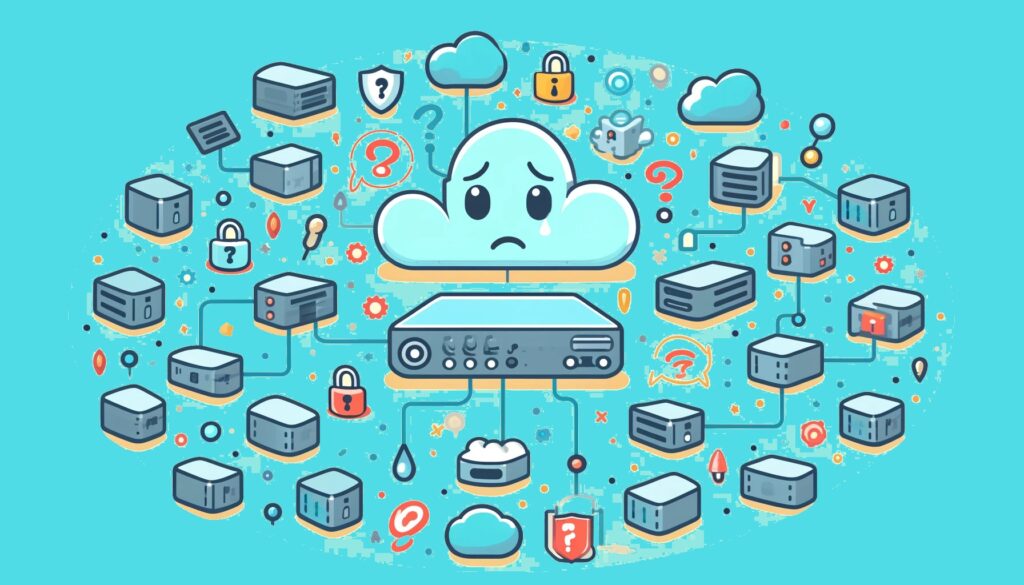In this new digital age, when large amounts of data are produced every single day, data storage and data protection have become more critical than ever before. Whether we refer to customer information or different digital records, such as emails, documents, and even social media posts, most businesses need a data storage solution that not only is flexible enough to scale with the amount of data they collect, produce, and store but also can keep data safe and ensure it is readily accessible at all times.
When it comes to data storage models, blockchain-based decentralised storage is one of the solutions that have surfaced in recent years. By enabling users to store, share, and access data in a distributed manner, this type of storage offers a compelling alternative to traditional centralised storage systems. The proof comes from multiple real-world scenarios, which have shown that decentralised storage can provide better results compared to centralised storage, particularly in terms of security, privacy, transparency, and cost-effectiveness.
While the potential of decentralised storage is enormous, with some indisputable benefits, storing data on blockchain networks also comes with certain limitations that cannot be denied. Although the developers of certain decentralised storage solutions have successfully addressed and solved many of the issues associated with these systems, the following problems tend to persist, affecting decentralised storage at a general level.
- Setup complexity– Implementing and setting up a decentralised storage system often require a high degree of technical proficiency that might discourage non-tech-savvy users.
- Limited scalability – Decentralised storage solutions are continuously improved to address scalability issues. However, some of them still fail to match the on-demand scalability provided by centralised storage options at this time. This is particularly true for decentralised networks with a limited number of nodes. When dealing with too large or complex data sets or large-scale data processing requirements, a lack of resources could lead to network congestion, which may affect the overall system performance.
- Security concerns – While the decentralised model of data storage offers enhanced security, and developers are working continuously towards making it even safer, it is not immune to security risks. Similar to any other storage solution, decentralised storage remains a target of assailants, who can form malicious nodes within networks and compromise the security of the data stored.
- Potentially slower data retrieval – Unlike centralised systems, which rely on a single point of access and can experience bottlenecks during periods of high network activity, decentralised storage facilitates data retrieval from multiple nodes simultaneously. Not only does this distributed approach make decentralised networks faster; masternodes can also be created in case of high user activity to speed up data retrieval.Undoubtedly, decentralised storage ensures more efficient and seamless access to stored data compared to centralised systems. However, there are a few instances where data retrieval from decentralised systems might be slower. For instance, retrieving fragmented data from different nodes and assembling it to get the information required can result in longer processing times compared to fetching data from a single centralised system. A decentralised system may also incur routing overhead as data needs to be routed through multiple nodes to reach its destination. Additionally, decentralised systems often require careful coordination and synchronisation measures in order to deliver accurate data. Certain data consistency and synchronisation requirements can lead to network latency and delays in data retrieval. Another situation in which a decentralised system may be slower is when several nodes in a network are temporarily offline or experiencing high loads. Even though the request will be redirected to other nodes, this process can result in delays.
- Lack of standardisation– Another problem with decentralised storage is that it lacks centralised control. That could make it difficult to enforce the same policies and guarantee compliance with legislation. In the absence of centralised control, concerns about data ownership and accountability in case of any incidents, such as a data breach or misplaced transactions, often arise. Furthermore, because decentralised storage relies on a network of individual nodes to store, process, and access data, various security protocols, including different encryption methods and authentication mechanisms, may be employed. This could pose challenges in ensuring interoperability among the nodes used in a decentralised network and settling disputes if any arise.
- Cost: Decentralised storage is often more affordable than centralised solutions. However, it may not always be the best alternative, especially for businesses or individuals with moderate storage demands. The entire cost of a decentralised storage solution may be exacerbated by transaction fees, network usage fees, and additional maintenance costs related to the underlying blockchain technology utilised.
Decentralised storage undeniably offers solutions to most of the challenges associated with centralised storage systems. But before it can be widely used, it needs to deliver a service superior to the centralised storage solutions currently available.
The technology behind decentralised storage is still in its infancy and will remain in this phase for a few more years, with performance issues that could hold many businesses and individuals back from immediately adopting it. However, blockchain-based decentralised storage is the only technology that could help push the Web3 revolution forward. Therefore, now may be the right time for early adopters to jump on this new technology before it gains mass adoption as the centralised cloud technology once did. However, as with any other new technology, the future of blockchain-based decentralised storage is unpredictable. Change is constant and nobody knows for sure whether decentralised storage is indeed the future of data management or not.




